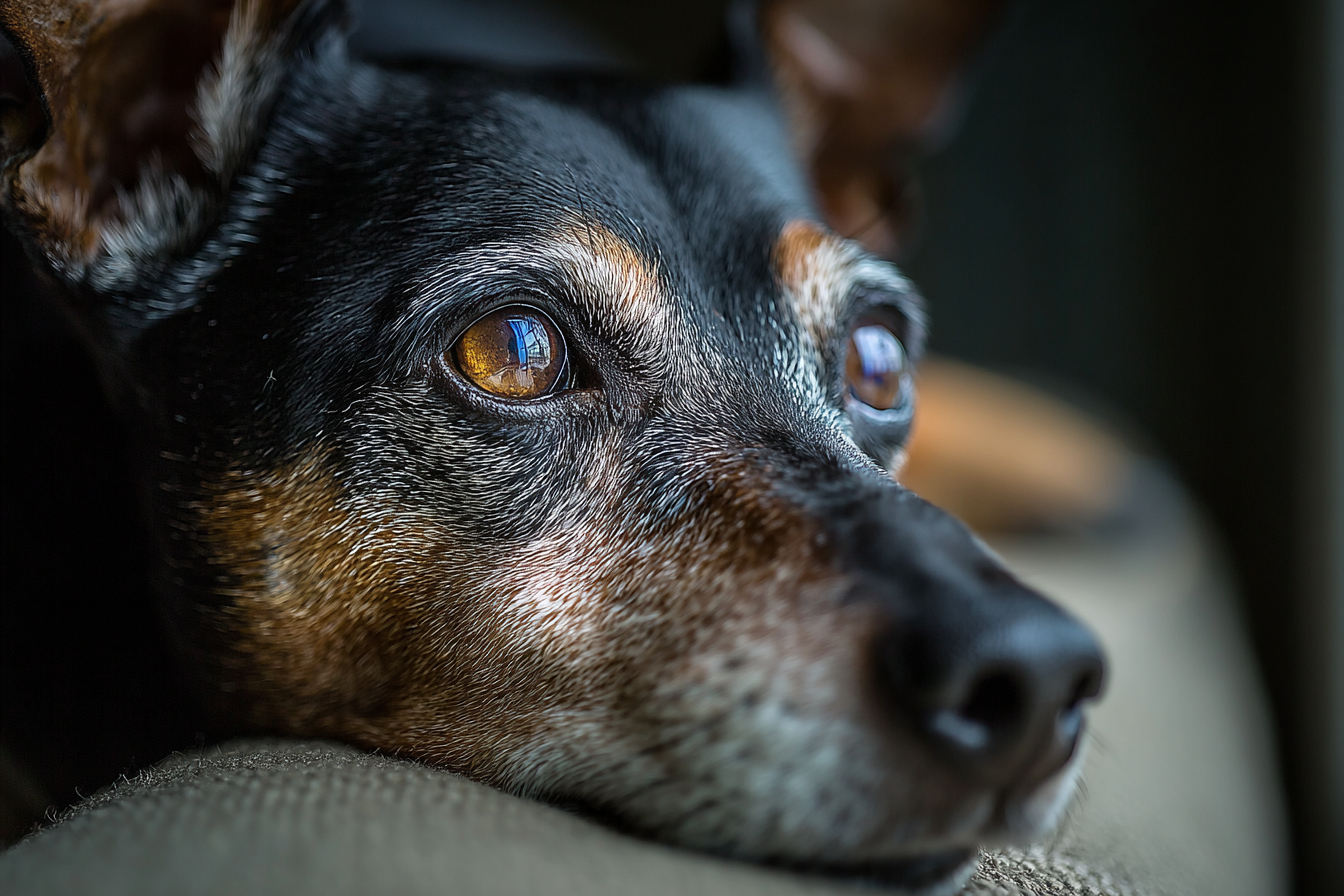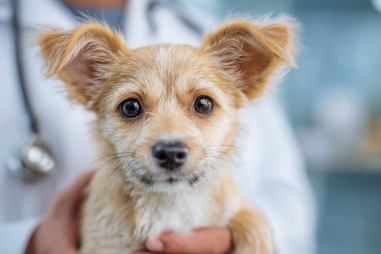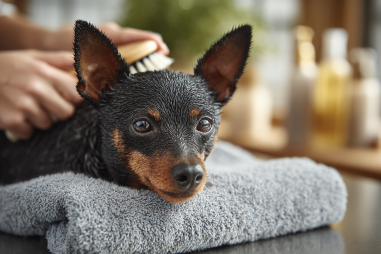Miniature Pinschers are lively little dogs known for their spirited personality and elegance. As a devoted owner, understanding their lifespan and the aging process is crucial to providing the best care possible. With proper attention, these tiny dynamos can enjoy a long, healthy life filled with love and vitality. Read on to discover what to expect as your Miniature Pinscher ages, including their typical lifespan, signs of aging, and how to adapt care routines to support their wellbeing during the golden years.
Average Lifespan of the Miniature Pinscher
The Miniature Pinscher, often affectionately called the “Min Pin,” typically enjoys a reasonably long lifespan compared to many other breeds. On average, you can expect your Miniature Pinscher to live between 12 and 16 years. This longevity is a testament to their robust health and small size, which generally correlates with a longer life in dogs.
Of course, genetics, diet, exercise, and overall care significantly influence individual lifespan. Some Miniature Pinschers have been known to elegantly reach 17 years or more, especially in homes where they receive proactive health management and plenty of love.
Signs of Aging to Watch For
As your Miniature Pinscher moves into their senior years, typically around 7 to 10 years old, you may start to notice subtle changes indicating they are aging. Recognizing these signs early allows you to adjust their care for improved comfort and health.
- Decreased Energy Levels: An older Miniature Pinscher might not be as hyperactive or eager to play for extended periods as they once were.
- Graying Fur: You may see some graying around the muzzle and face, a natural sign of aging.
- Changes in Mobility: Stiffness, reluctance to jump, climb stairs, or longer recovery times after exercise could indicate joint or muscle issues.
- Hearing and Vision Decline: Seniors can develop diminished hearing or eyesight, making them less responsive to calls or easily startled.
- Dental Issues: Tartar buildup and gum disease may cause discomfort or difficulty eating.
- Weight Fluctuations: Weight gain from reduced activity or weight loss due to health problems might become apparent.
- Changes in Behavior: Some seniors develop anxiety, confusion, or altered sleep patterns due to cognitive decline.
Being mindful of these symptoms helps you work with your veterinarian to manage any health complications effectively.
Adjusting Diet and Exercise for Senior Miniature Pinschers
Proper nutrition and exercise are foundational elements to maintaining your Miniature Pinscher’s health as they age. However, their needs shift over time, and it’s essential to tailor their diet and activity routines accordingly.
Diet Modifications
Senior dogs generally require fewer calories because their metabolism slows down, and they tend to be less active. Feeding your Miniature Pinscher a high-quality senior dog food can help provide balanced nutrition tailored to their changing needs. Look for diets rich in:
- Lean proteins to maintain muscle mass
- Fiber to aid digestion
- Antioxidants for immune support
- Glucosamine and chondroitin to promote joint health
Avoid overfeeding and monitor their weight regularly to prevent obesity, which can exacerbate joint pain and other health issues.
Exercise Adjustments
While your aging Miniature Pinscher might not chase after toys with the same vigor, regular gentle exercise is still important to keep their joints flexible and muscles toned. Daily walks at a comfortable pace are ideal, focusing on low-impact activities such as:
- Leisurely strolls around the neighborhood
- Swimming, which is easy on joints
- Short play sessions to stimulate mental and physical activity
Always observe your dog during exercise and avoid pushing them if they show signs of fatigue or discomfort.
Preventive Care and Regular Vet Checkups
As your Miniature Pinscher enters their senior years, preventive care and routine vet visits become even more vital. Annual or biannual checkups allow your veterinarian to monitor their health closely, identify early signs of disease, and update vaccinations or parasite control as needed.
Key aspects of senior preventive care include:
- Comprehensive physical exams: Including heart, dental, eyes, and joints assessment
- Blood work and urine analysis: To detect issues like kidney or liver disease early
- Screening for common senior diseases: Such as arthritis, dental disease, diabetes, and hypothyroidism
- Dental cleanings: To prevent infections and tooth loss
- Weight and body condition evaluation: To tailor diet and exercise plans
Open communication with your veterinarian ensures you can address health concerns promptly, enhancing your dog’s quality of life.
Comfort and Mobility Support
Maintaining your Miniature Pinscher’s comfort and mobility is a top priority as they age, especially if joint stiffness or arthritis develops. There are many ways to help your senior dog stay comfortable and mobile:
- Orthopedic and supportive bedding: Soft, cushioned beds reduce pressure on joints and promote restful sleep.
- Joint supplements: Products containing glucosamine, chondroitin, and omega-3 fatty acids can reduce inflammation and support joint health. Always consult your veterinarian before starting supplements.
- Physical therapy and massage: Gentle massages and specific exercises can relieve stiffness and improve circulation.
- Ramps and stairs: Providing ramps or pet stairs helps your dog reach favorite spots like sofas or beds without jumping and risking injury.
- Non-slip floor mats: These prevent slips and falls, especially on hardwood or tile floors.
By providing these comfort aids, you help ensure your Miniature Pinscher continues to move around safely and with less pain.
Emotional and Mental Well-being in Older Dogs
Aging affects not only the body but also the mind and emotions of your Miniature Pinscher. Seniors may experience anxiety, confusion, or signs of cognitive decline similar to dementia in humans. Supporting your dog’s mental well-being is just as important as addressing physical health.
- Maintain a routine: Sticking to regular feeding, walking, and playtimes reassures your dog and reduces stress.
- Mental stimulation: Continue engaging their mind with safe puzzle toys, scent games, or gentle training sessions.
- Provide a calm environment: Minimize loud noises and sudden changes that might overwhelm them.
- Offer plenty of affection: Regular petting, talking, and companionship help your dog feel secure and loved.
- Consider supplements or medications: If your veterinarian diagnoses cognitive dysfunction, treatments may be available to ease symptoms.
By paying close attention to your Miniature Pinscher’s emotional needs, you create a supportive environment that enriches their golden years.
Caring for a Miniature Pinscher through their lifespan involves understanding their unique needs at every stage. As they age, paying close attention to signs of change and adapting their diet, exercise, and healthcare routines will help your energetic companion enjoy a long, happy life. With love, patience, and proper care, your Miniature Pinscher will continue to brighten your days well into their senior years.







